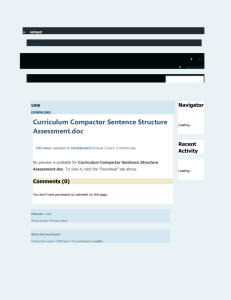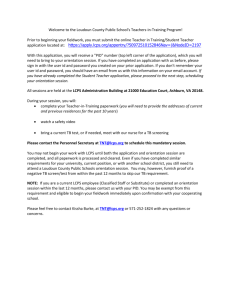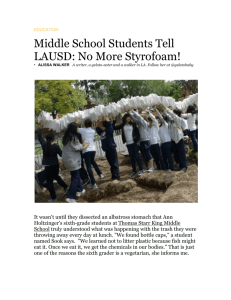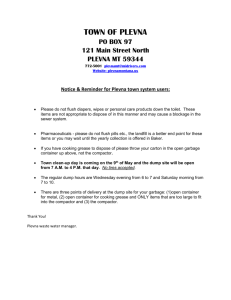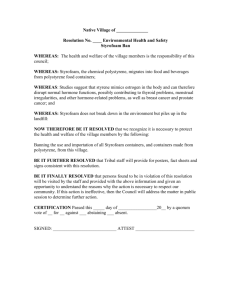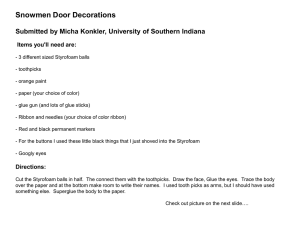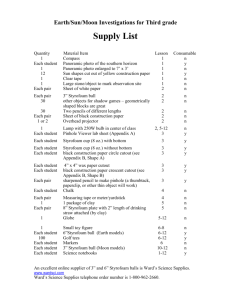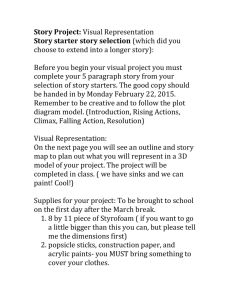For immediate release: November 29, 2011 LCPS Begins Recycling
advertisement
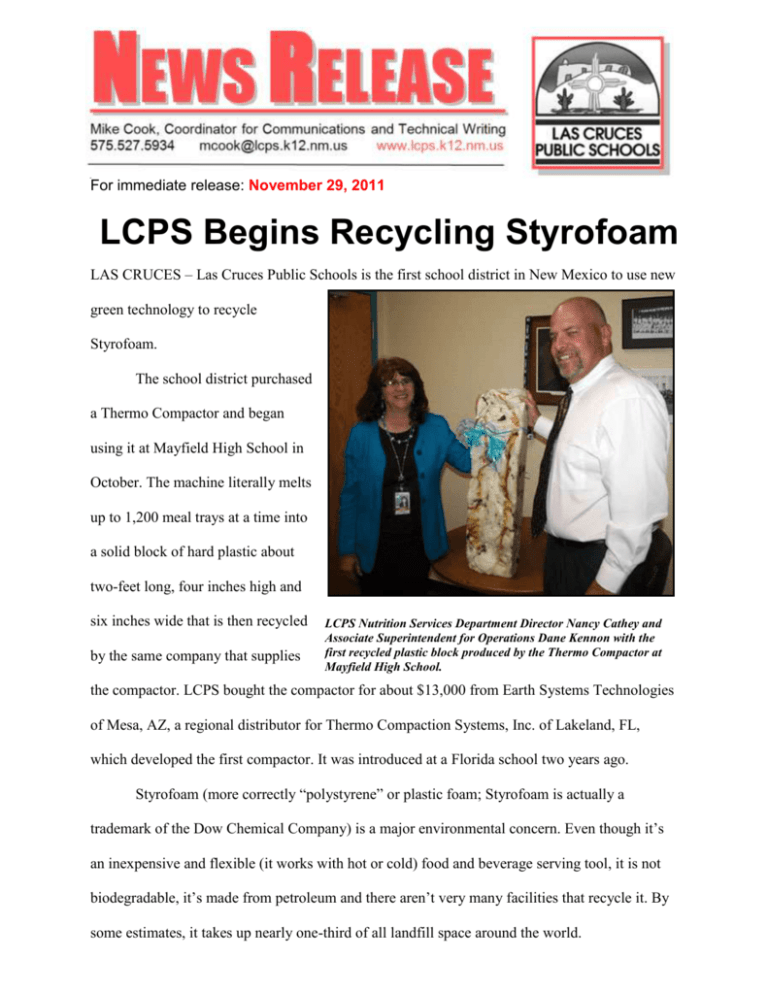
For immediate release: November 29, 2011 LCPS Begins Recycling Styrofoam LAS CRUCES – Las Cruces Public Schools is the first school district in New Mexico to use new green technology to recycle Styrofoam. The school district purchased a Thermo Compactor and began using it at Mayfield High School in October. The machine literally melts up to 1,200 meal trays at a time into a solid block of hard plastic about two-feet long, four inches high and six inches wide that is then recycled by the same company that supplies LCPS Nutrition Services Department Director Nancy Cathey and Associate Superintendent for Operations Dane Kennon with the first recycled plastic block produced by the Thermo Compactor at Mayfield High School. the compactor. LCPS bought the compactor for about $13,000 from Earth Systems Technologies of Mesa, AZ, a regional distributor for Thermo Compaction Systems, Inc. of Lakeland, FL, which developed the first compactor. It was introduced at a Florida school two years ago. Styrofoam (more correctly “polystyrene” or plastic foam; Styrofoam is actually a trademark of the Dow Chemical Company) is a major environmental concern. Even though it’s an inexpensive and flexible (it works with hot or cold) food and beverage serving tool, it is not biodegradable, it’s made from petroleum and there aren’t very many facilities that recycle it. By some estimates, it takes up nearly one-third of all landfill space around the world. “The LCPS Board of Education adopted a district-wide energy and water conservation policy last December. It mandates that we save energy and reduce waste whenever and wherever possible in our schools,” said LCPS Superintendent Stan Rounds. “Recycling Styrofoam and reducing the solid waste it produces are important steps in the implementation of that policy,” he Left to right with the Thermo Compactor at Mayfield High School are LCPS Nutrition Services Department Field Supervisor Mary Sanchez and LCPS Nutrition Services Department Coordinator Norma Valenzuela. Photo courtesy of the LCPS Nutrition Services Department. said. LCPS continues to reduce its use of polystyrene, but there aren’t currently any economically viable alternatives when it comes to the disposable food trays that Mayfield and some other schools still use because they don’t have the large-capacity dishwashers necessary to properly clean reusable plastic trays. The Thermo Compactor works by reversing the polystyrene manufacturing process. Up to 1,200 used food trays are placed in the compactor at a time. The compactor then applies conductive heat to convert the trays into a liquid resin that is cooled into a solid block of plastic. The entire process takes about three hours. A typical lunch in the Mayfield cafeteria produces 400 used polystyrene trays. Operating the compactor three times a week at the school means about six to eight fewer large plastic trash bags full of solid waste will be produced by the school and transported to the landfill every school day. And, using the compactor instead of a dishwasher saves water and doesn’t require the use of chemical cleaners. “We are pleased that we have decreased the amount of Styrofoam that is going to the landfill,” said Cathey. “In the future, we hope to find an affordable substitute for Styrofoam or purchase more of this type of machine,” she said. “The Styrofoam Melting Thermo Compactor is truly the solution to an age old problem; to be able to finally, effectively, ‘recycle’ Styrofoam waste,” Joe Wall of Earth Systems Technologies of Mesa, AZ, a regional distributor of Thermo Compactors, shows the block of solid plastic that results from the Styrofoam recycling process. Photo courtesy of the LCPS Nutrition Services Department. said Earth System Technologies representative Joe Wall. “The melted end product produces things like flower pots, pavers, picture frames, etc., all while protecting our environment and landfills and drastically cutting our waste transportation costs. This is not only the ‘right thing’ to do, it's a huge district money saver,” he said. For more information, contact Cathey at 575.527.5996 or ncathey@lcps.k12.nm.us. Visit www.thermocompaction.com/Home_Page.html. -30-
